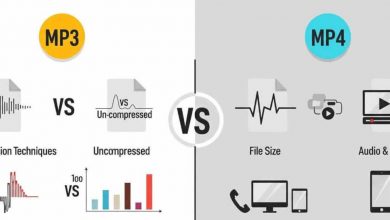Crypto Cloud Mining Contracts: The Baited Hook of Modern Investment Scams

Warning!: Stay away from crypto mining contracts that promise fixed or guaranteed income. Most are classic investment scams, specifically cloud mining deposit scams or advance fee crypto investment frauds, designed to steal your money through fake profits, hidden clauses, and impossible withdrawal conditions.
If you ever fall for the trap of investing in cloud mining contract scams like DLMining, you may believe you are joining a legitimate cryptocurrency mining operation. You purchase what appears to be a $10,000 mining contract, trusting that your funds will be used to power mining hardware and generate daily cryptocurrency profits.
The website looks convincing, sleek and professional, filled with charts showing “mining progress,” profit dashboards that rise steadily, and testimonials that seem genuine. To an unsuspecting investor, the operation feels authentic, especially when it flaunts a UK business registration number and claims to operate under British regulatory standards. Everything appears legitimate, until the deception unfolds.
How They Reel You In, The Psychology of the Bait
Scammers understand psychology as well as technology. They start small. Initially, you might be invited to invest a modest sum, perhaps $100 or $500, and to your surprise, it appears to generate quick, impressive returns. The platform may even allow you to withdraw a small amount, giving you a false sense of legitimacy.
This is the bait.
Just like a fisherman dangling a worm, they tempt you with quick wins and visible “profits.” You feel reassured, perhaps even emboldened, and begin to trust the process. Then, as your confidence grows, you are tempted to increase your investment. This is where the trap tightens.
When you deposit larger sums, $5,000, $10,000, or more, you unknowingly become the big fish. The small investment was merely the hook and bait. The scammers reel you in carefully, feeding you fabricated profit data, until you make the larger deposit. Only then do they strike, your funds are frozen, withdrawals blocked, and communication turns hostile or evasive.
The Trap Behind the Screens
Once you have committed a significant amount, the tone shifts. You discover a hidden clause stating that your contract only becomes valid if you purchase two additional 2 x $10,000 ($20,000) contracts within ten days. This critical condition is either never disclosed before payment or hidden deep in obscure, deliberately confusing terms. And because you did not see it on time, your money is stuck as you do not have the funds to invest further into the scam.
When you try to withdraw your deposit or the profits displayed on your account, the company refuses. You’re told that you must first complete the extra $20,000 purchase before any withdrawals or your deposit or profit can be processed. At this time, you may even ask to get back just your deposit, you tell them you do not want the profit, but all is gone.
If you question this, they respond coldly, insisting, “DLMining reserves the right to interpret its terms however it chooses.” They shift the blame, claiming it was your responsibility to read the fine print. In some cases, they even suggest you borrow the money from your bank or family to “complete” the contract, promising that you will recover all your funds within 35 days. Of course, this is a calculated lie designed to extract as much money as possible.
The Fall, When the Hook Snaps Shut
If you resist or refuse to pay more, they act fast. Your account is locked, your funds frozen, and your “profits” vanish from the dashboard. You may see automated messages like “under review” or “temporarily suspended,” all designed to create confusion and false hope.
In reality, there is no mining operation. There are no servers, no hash rates, no electricity bills, and no blockchain activity. The “mining dashboard” is simply an animated web interface displaying numbers that mean nothing.
These scammers run textbook cloud mining investment scams and advance fee frauds. They exploit the complexity of cryptocurrency technology to trick people into believing they are part of a cutting-edge financial opportunity. What you see is an illusion; what they do is theft.
The Industry Landscape: A Billion-Dollar Fraud Network
According to Chainalysis’ 2024 report, scammers stole an estimated US$9.9 billion through cryptocurrency-related frauds. A significant proportion of that came from fake “investment” and “cloud mining” schemes. The FCA reported that investment scams in the UK surged by over 40% in 2024, with fake crypto operations among the most prevalent.
Globally, crypto scams remain one of the fastest-growing financial crimes. Analysts at CoinLedger estimate that investment fraud, including mining and staking scams, accounts for nearly 60% of all crypto-related losses reported to authorities.
In the UK alone, overall financial fraud losses reached £33.2 billion in 2024. Investment and advance-fee scams made up a significant share, particularly those using the disguise of legitimate UK companies.
The Misuse of the UK’s Reputation
Many fraudulent platforms hide under the banner of the UK’s reputable business framework. They register limited companies at Companies House, sometimes using generic addresses or virtual offices. To the casual investor, a UK registration number signals credibility, but that trust is misplaced.
Until recently, Companies House served primarily as a registrar, not a regulator. It did not verify directors’ identities or assess business authenticity. This loophole has been widely exploited. Scammers incorporate shell companies, use them to host fraudulent investment websites, and vanish once the operation collapses.
In response, the Economic Crime and Corporate Transparency Act 2023 introduced new powers for Companies House. Starting in 2025, the agency can now verify directors’ identities, flag suspicious filings, and strike off fraudulent entities more swiftly. This reform marks a crucial step in closing the loophole that allowed thousands of scams, like DLMining, to operate under the guise of UK legitimacy. However, these scammers operate under a different legal name like DL Management Services Ltd, which does not reflect their so-called mining operation. Yes, registered with companies house, but not FCA license to offer investment services within the United Kingdom. This is something Companies House will still have to look into and investors should be cautious of.
The FCA’s Crackdown on Scammers
The Financial Conduct Authority (FCA) has intensified its efforts to counter this growing problem. It maintains a public warning list of unauthorised firms and routinely investigates platforms promoting illegal investment services to UK consumers.
In partnership with Action Fraud, the National Crime Agency (NCA), and international bodies, the FCA is enhancing surveillance on online advertisements, influencer-led promotions, and fake crypto investment platforms. It has introduced stricter guidelines for crypto marketing, requiring all promotions targeting UK investors to include transparent risk warnings and compliance declarations.
Yet, challenges remain. Many of these fraudulent websites host servers overseas, in jurisdictions where enforcement is weak or non-existent. This cross-border nature makes it difficult to trace and prosecute operators, emphasising why consumer awareness and early vigilance remain the most powerful forms of protection.
How Victims Are Manipulated
Cloud mining scammers exploit both greed and trust. They craft personal relationships with victims, posing as friendly account managers or mentors. They celebrate your “success” when your dashboard balance grows and offer tips on “maximising profits.” These friendly exchanges lower your guard, until they turn cold and threatening once you hesitate to invest more.
It’s important to understand that victims are not foolish. These scams are psychologically engineered. They use scarcity (“only 10 contracts left”), urgency (“bonus expires in 24 hours”), and authority (“our compliance officer has approved your withdrawal”) to create a false sense of legitimacy.
What Lies Ahead: AI and Deepfake Fraud
Experts predict that future scams will be even more sophisticated. Criminals are already deploying AI-generated faces, deepfake videos, and automated chatbots to impersonate legitimate executives and support agents. By 2027, cybersecurity analysts estimate that up to 70% of all financial scams will include AI-generated content to enhance credibility and accelerate victim conversion.
This evolution underscores why regulators and consumers alike must adapt quickly. Verification of identity, licensing, and proof of physical mining infrastructure will become more essential than ever.
Prevention and Final Warning
1) Always verify companies through the FCA register, not just Companies House.
2) Never trust guaranteed returns. Legitimate crypto mining yields fluctuate daily.
3) Avoid pressure tactics. No genuine investment requires urgent deposits.
4) Demand transparency. Ask for evidence of physical mining operations.
5) Report immediately. Contact Action Fraud if you are in the UK, and your bank at the first sign of irregularity. Report to the appropriate Law enforcement agency in your country or your financial conduct authority.
6) Educate others. Awareness prevents further victims.
Conclusion
Crypto cloud mining contracts that mirror DLMining’s methods are not innovative investments, they are carefully orchestrated frauds. They exploit the credibility of UK business registration systems, the complexity of cryptocurrency technology, and the emotions of hope and trust.
They rope you in gently with small, believable wins, baiting you like a fish, until you take the hook, the larger deposit that seals your loss. Once you become the “big fish,” your funds are locked, lost or they disappear, leaving you with nothing but frustration and regret.
While regulatory progress through Companies House and the FCA is promising, the strongest line of defence remains informed vigilance. In the digital gold rush, not everyone selling a “mining contract” has a mine, many are just selling shadows.
Always verify, never rush, and remember: if it sounds too good to be true, it almost certainly is.

Source: Crypto Cloud Mining Contracts: The Baited Hook of Modern Investment Scams



